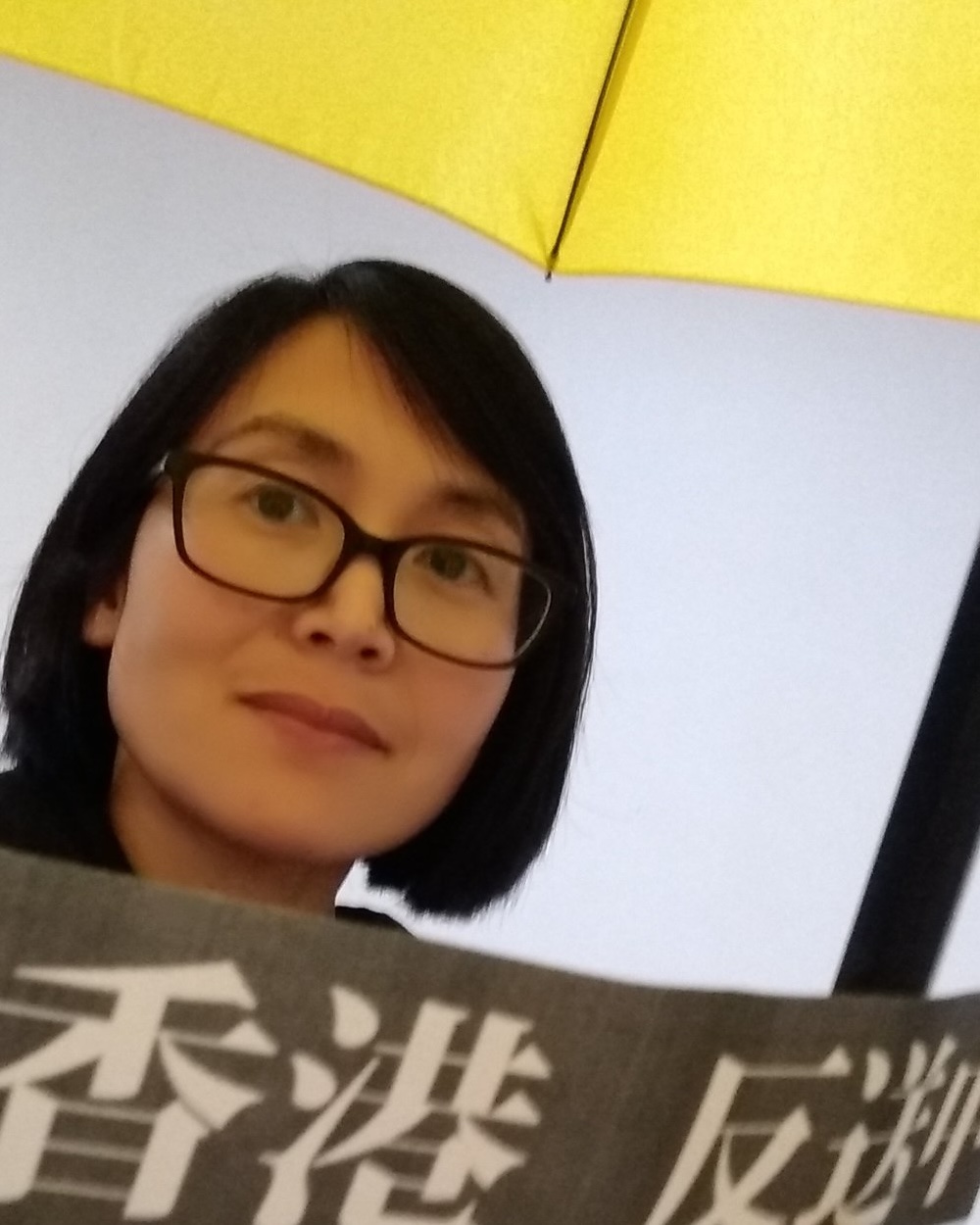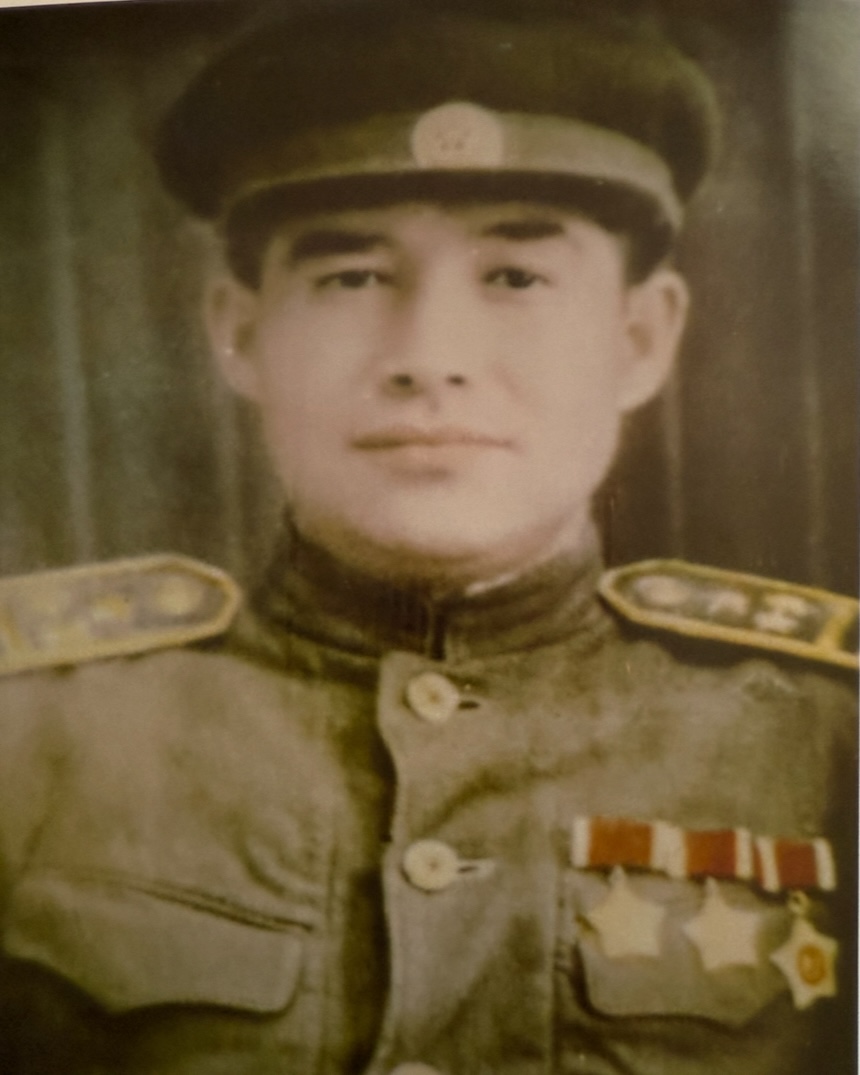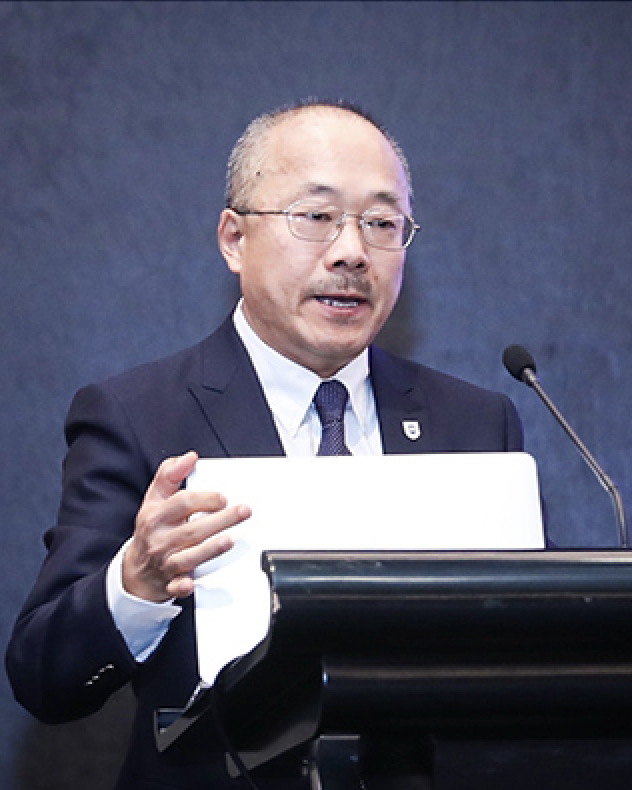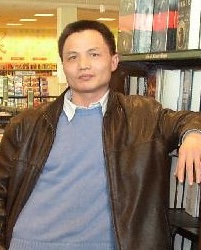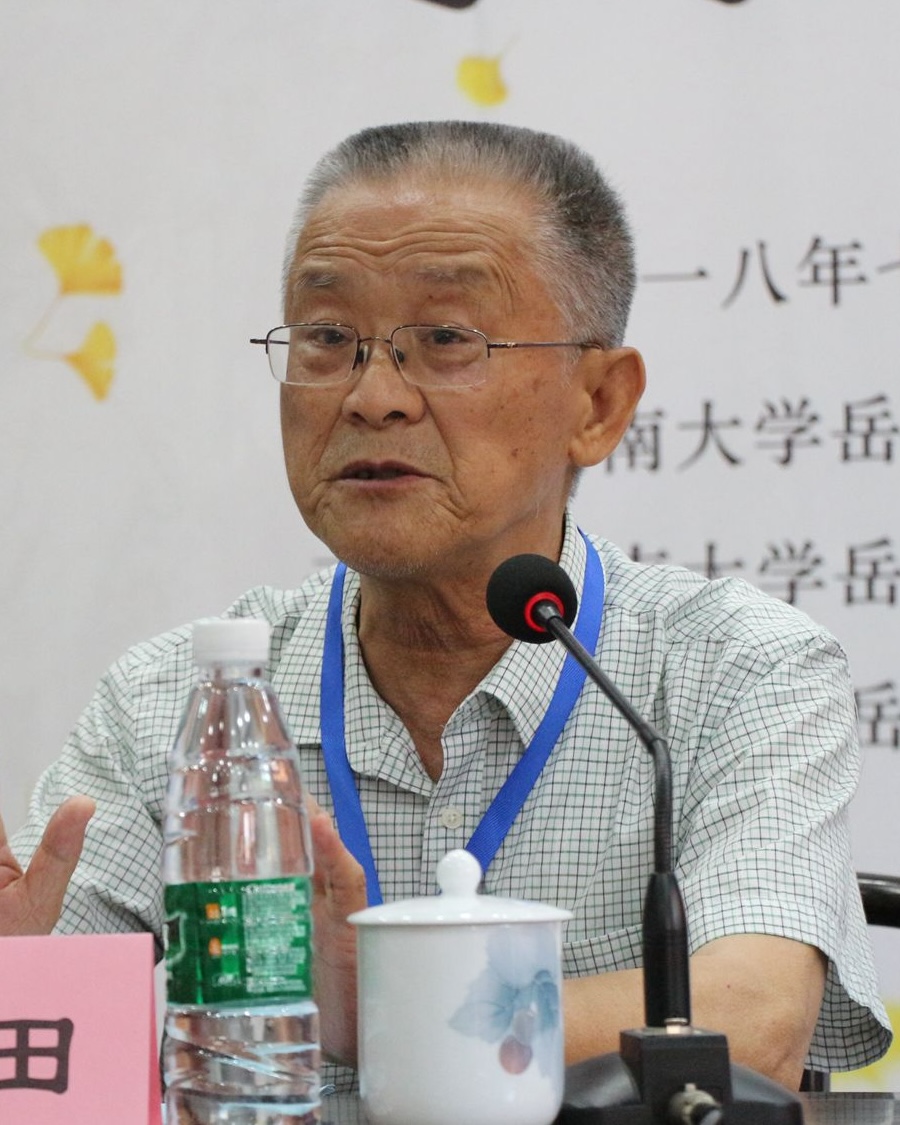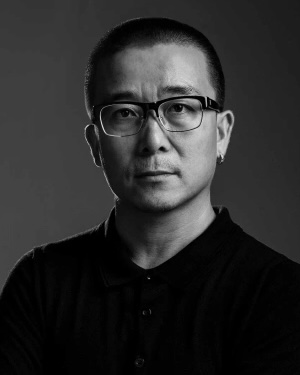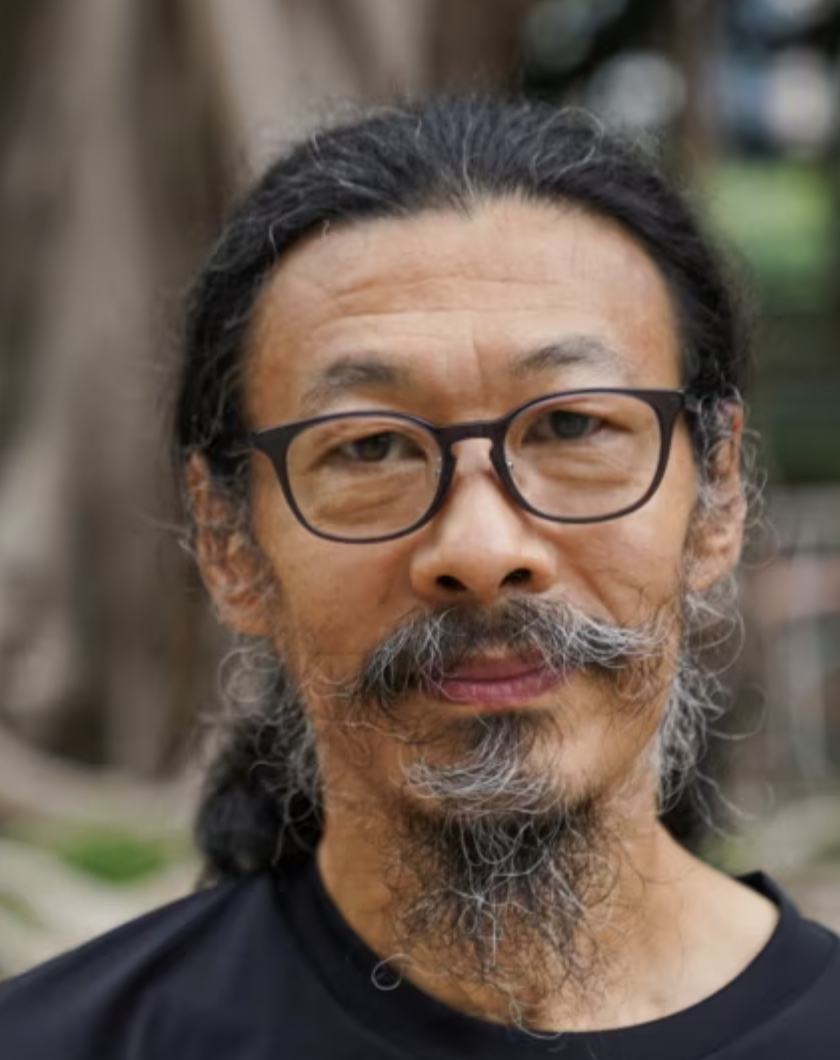Explore the creators
Showing 232 creators in the collection
232 creators
Wang Bing
Wang Bing (1967- ), an independent documentary filmmaker, was born in Xi'an and currently lives and works between China and France.
In 1992, Wang Bing graduated from the Lu Xun Academy of Fine Arts with a degree in photography. At that time, he conducted detailed observations of factory workers in the Tiexi District for his photographic work. In 1995, he began studying film at the Beijing Film Academy. Before becoming an independent filmmaker in 1998, he worked for a period at a television station. His first documentary, Tie Xi Qu: West of the Tracks, filmed in 2002, received numerous awards.
Wang Bing's films portray ordinary people who were laid off during China's recent economic transformation, presented with a rare aesthetic sensibility and uncompromising gravity. His films contain a beautifully tragic quality, where the transience of his characters' lives is elevated into parables. These works offer a deep reflection on the historical cost of progress in modern China and push realist cinema to its extreme.
In 2009, Galerie Chantal Crousel in Paris hosted his first solo exhibition, featuring two documentaries: Fengming, A Chinese Memoir and Man with No Name. Since then, Wang Bing has produced many documentaries, such as Three Sisters (2012), De'ang (2016), Bitter Money (2016), Mrs. Fang (2017), and 15 Hours (2017). The latter two were exhibited at Documenta 14 in Athens and Kassel in 2017.
From 2018 to 2019, Wang Bing served as a visiting artist professor at Le Fresnoy – Studio national des arts contemporains in France.
In 2017, Mrs. Fang was awarded the Golden Leopard, the highest prize at the Locarno Film Festival in Switzerland. In the same year, he also received the EYE Art & Film Prize in Amsterdam, Netherlands, in recognition of his entire body of work.
Wang Bing's significant solo exhibitions include: Cercle Cité, Luxembourg (2024); Le Bal, Paris (2021); Kunsthaus Zürich (2018-2019); CCA Wattis Institute for Contemporary Arts, San Francisco (2016); Centre Pompidou, Paris (2014). In 2018, the Museo Nacional Centro de Arte Reina Sofía and Filmoteca Española in Madrid held a major retrospective of his work.
He has participated in numerous group exhibitions, including: Museum of Applied Arts (MAK), Vienna (2023); Centre de la photographie Genève, Switzerland (2022); Marta Herford, Germany (2021); The Textile Museum, Washington D.C. (2020); Bowdoin College Museum of Art, Brunswick (2019); Shenzhen & Hong Kong Bi-City Biennale of Urbanism\Architecture (2017); Centrale for Contemporary Art, Brussels (2017); Jeonju International Film Festival (2015); Shanghai Biennale (2014); Filmmaker Festival, Milan (2010).
His works are held in the collections of: Museo Nacional Centro de Arte Reina Sofía, Madrid, Spain; M+ Museum, Hong Kong, China; Centre Pompidou, Paris, France; National Museum of Contemporary Art, Athens, Greece; Centre National des Arts Plastiques, Paris, France.
Sopakhun Süwüroff
(English follows) Sopaxun Süwürof, 20-esirde Uyghurlar arisidin yetiship chiqqan meshhur herbiy qomandan, milliy azadliq inqilabining aktip qatnashquchisi, 1945-1949-yilliridiki Sherqiy Türkistan Jumhuriyiti milliy armiyesining dangliq komandiri, Xitay kommunist istilasidin kéyin uzun mezgil siyasiy jehettin basturushqa we teqipke uchrighan shexslerdin biri.
Sopaxun Süwürof 1915-yili 5-ayda Qomul nahiyesining Astana yezisida tughulghan. 1931-yili Qomulda qozghalghan Uyghur xelqining Xitay hakimiyitige qarshi milliy azadliq inqilabining jeryanlirigha shahit bolghan. 1936-yili 16 yéshida Xuangpu Herbiy Mektipining Ürümchi shöbisige qobul qilin’ghan. 1939-yili bu mektepni püttürgendin kéyin, Shinjang ölkisining dubani, militarist Shéng Shiseyning kontrolluqidiki Qeshqerde turushluq 31-atliq polkqa teqsim qilin’ghan. Shuningdin étibaren uning herbiy komandirliq hayati bashlan’ghan. U ilgiri-keyin bolup, izwot komadiri, bataliyon komandiri, polk shitabida herbiy meslihetchi, rota komandiri qatarliq wezipilerni ötep, herbiy septe chéniqqan, shundaqla nurghun urushlarni béshidin ötküzüp, emeliy jeng tejribisige ige bolghan. 1944-yili Xinjiang ölkisining dubani, militarist Shéng Shisey Chongqinggha ketkendin kéyin, Sopaxun Guomindang armiyesi 46-diwizyesi qarimiqidiki yerlik milliy eskerler toplan’ghan 9-rotining komandiri bolghan shundaqla Ürümchi etrapida herbiy wezipe ötigen.
1944-yili 9-ayning axiri Ili rayonida Uyghur, Qazaq qatarliq yerlik xelqlerning Gomindang hakimiyitige qarshi milliy azadliq inqilabi partlighan. Shu yili 11-ayning 12-küni Ghuljada Sherqiy Türkistan Jumhuriyiti qurulghanliqi jakarlan’ghan. Arqidinla muntizim milliy armiye teshkillinip, bir qatar ghelibilik urushlar netijiside Ili, Tarbaghatay, Altay 3 wilayetni azad qilghan. 1945-yili 9-aygha kelgende milliy armiye ghelibeséri sherqqe ilgirilep, ölke merkizi Ürümchige aran 120 kilométir kelidighan Manas deryasi boyigha qistap kelgen. Weziyettiki bu jiddiy özgirishler Sopaxun we u qomandanliq qiliwatqan 9-lyendiki milliy eskerlerni oyghatqan.
1945-yili 2-ayda Gomindang da’iriliri Sopaxun qomandanliqidiki milliy eskerler merkezleshken 8- we 9-lyenlerni Shixo aldinqi sépige Maytagh néfitlikini muhapizet qilishqa ewetken. Pursetni ghenimet bilgen Sopaxun qol astidiki 9-lyen bilen 8-lyendiki milliy eskerlerni qozghap, Gomindang hökümranliqigha qarshi qozghilang kötürüp, Ili inqilabigha awaz qoshqan. Ular Gomindangning shixo aldinqi sépige toplighan 20 ming kishilik armiyesining qatmu-qat qorshawini bösüp ötüp, heriketchan partizanliq urushi qilip, axiri hayat qalghan 106 neper esker bilen birlikte Sherqiy Türkistan milliy armiyesi kontrolluqidiki azad rayon’gha ötüp ketken. Shundaq qilip, Sopaxun Gomindang armiyesining rota komandiridin Sherqiy Türkistan milliy armiyesining polkownik derijilik komandiri bolup qalghan.
1945-yili 7-ayda Ghuljadiki Sherqiy Türkistan Jumhuriyiti hökümiti bilen milly armiye bash qomandanliq shitabi Tengritéghidin ötüp Jenupta ikkinchi urush sépi échishni qarar qilghan. Buning bilen polkownik Sopaxun komandirliqida milliy armiyening jenubqa yürüsh qilish qismi teshkillinip, Aqsugha ewetilgen. Sopaxun qomandanliqidiki milliy armiyening jenubqa yürüsh qilish qismi shu yili 8-9-aylarda Bay nahiyesi bilen Aqsu konasheher nahiyesini azad qilip, Aqsu yengi sheher sépili ichige qamilip qalghan Gomindang armiyesige qarshi hel qilghuch urush qilghan. Emma shu yili 10-ayning otturilirida Gomindang hökümiti bilen Ilidiki Sherqiy Türkistan Jumhuriyiti waqitliq hökümiti otturisida urush toxtap, Ürümchide tinchliq söhbiti bashlan’ghan. Buning bile Spaxun qomandanliqidiki milliy armiyening jenubiy yönilish qismi buyruq boyiche Iligha chékinip chiqqan.
Sopaxun qomandanliqidiki milliy armiye jenubiy yönilish qismi 1945-yili 11-ayning bashlirida qayta islah qilinip, milliy armiyening 5-atliq polki (kéyinche Tékes atliq polki) qilip teshkillen’gen. “Urush qehrimani” degen shereplik nam bérilgen Polkownik Sopaxunning mezkur polkning komandirliqigha teyinlen’gen. Shuningdin kéyin, Polkownik Sopaxun taki 1949-yilidiki communist Xitay istélasigha qeder Ilidiki milliy armiye bash qomandanliq shitabida muhim wezipilerni ötigen.
1949-yili 9-ayning axiri Kommunist Xitay armiyesi Sowétler Ittipaqining yardimi bilen Sherqiy Türkistanni ishghal qilghandin kéyin, Polkownik Sopaxun siyasiy jehette izchil halda “gumanliq shexs”, “Xitay kompartiye hakimiyitige bolghan sadaqiti töwen” dep qarilip, “idiye özgertish” kurslirigha ewetilgen we “ménge yuyush” jeryanidin ötküzülgen. 1951-yiuli 6-ayda Shinjang Herbiy Rayoni siyasiy bashqarmisi achqan siyasiy kursta terbiyelinishke ewetilgen, shundaqla herbiy septiki muhim wezipilerdin yiraqlashturulghan. 1954-yili Kommunist Xitay da’iriliri milliy armiyeni emeldin qaldurghandin kéyin, Polkownik Sopaxun 1955-yili mejburiy halda herbiy septin chekindürülüp, Shinjang Uyghur Aptonom Rayonluq Tashyol idarisige adettiki kadir qilip yötkiwetilgen. 1958-yili u “esheddiy yerlik milletchi” dégen qalpaq bilen tenqid qilin’ghan we teqip astigha élinghan. “Medeniyet Zor Inqilabi” jeryanida u qizil qoghdighuchilarning hujum we küresh qilish nishanigha aylinip, éghin künlerni béshidin ötküzgen. 1978-yili Maw dewri axirlashqandin kéyinmu uning üstidiki siyasiy bésim we teqipler axirlashmighan. 1930-we 1940-yillardiki milliy inqilab heqqide nurghun eslime maqaliliri yazghan bolsimu, emma köp qismi élan qilalmighan. “Men kechken kéchikler” namliq eslime kitabi yézilip 30 yildin artuq waqit ötkende, yeni aptorning wapatidin kéyin, kitabtiki nurghun mezmunlar qisqartilip yaki qayta retlinip, 2011-yili andin neshir qilin’ghan.
Sopaxun Süwürof 2001-yili 12-ayning 17-küni Ürümchide 86 yéshida wapat bolghan.
Sopakhun Süwüroff, a well-known Uyghur military commander of the 20th century and an outstanding commander of the East Turkestan Republic National Army from 1945 to 1949. He was also one of the prominent figures subjected to prolonged political oppression and persecution after the CCP took control of Xinjiang (East Turkestan) in late 1949.
Sopakhun Süwüroff was born in May 1915 in Astana (Erbao) Township, Qomul (Hami) County, Xinjiang. In 1931, he witnessed the local Uyghur people's uprisings against Chinese rule that broke out in Qomul. In 1936, at the age of 16, Sopakhun enrolled in the Urumqi branch of the Whampoa Military Academy and, after graduating in 1939, was assigned to the 31st Cavalry Regiment in Kashgar under the warlord Sheng Shicai. He served as a platoon leader, company commander, and staff officer in the cavalry regiment, accumulating extensive battlefield experience. In 1944, after Sheng Shicai was transferred to Chongqing, Sopakhun became the commander of the 9th Company of the Nationalist Army's 46th Division, stationed around Urumqi.
In late September 1944, an armed uprising by Uyghur, Kazakh, and other local ethnic groups against Kuomintang rule broke out in the Ili region. On November 12 of the 1944, the East Turkestan Republic was declared in Ili, and a formal National Army was established, which successively liberated the three districts of Ili, Tarbagatai (Tacheng), and Altay. By September 1945, the National Army had advanced to the Manas River, just 120 kilometers from Urumqi. This situation awakened Sopakhun and the Uyghur soldiers of his 9th Company.
In February 1945, the Kuomintang authorities assigned Sopakhun to lead the 8th and 9th Companies to defend the Maytagh (Dushanzi) oil fields. Seizing the opportunity, Sopakhun led his troops in a rebellion, pledging allegiance to the East Turkestan national revolution in Ili. After fierce battles, his two companies of soldiers broke through the encirclement of 20,000 Kuomintang troops. The last surviving 106 Uyghur soldiers eventually reached the liberated areas controlled by the East Turkestan National Army and joined forces with them. Thus, Sopakhun transitioned from being a company commander in the Kuomintang Army to becoming a colonel in the East Turkestan National Army.
In July 1945, the East Turkestan Republic government and the National Army headquarters in Ili decided to open a southern front. Sopakhun was appointed commander of the southern advance forces. Between August and September of that year, his forces liberated Bay (Baicheng) County and Onsu (Wensu) County and surrounded the Nationalist Chinese troops in Aksu City Wall. However, in mid-October, under Soviet mediation, representatives of the East Turkestan Republic in Ili and the Nationalist central government began peace talks in Urumqi.
As a result, Sopakhun's southern advance forces were ordered to cease fire and withdraw to Ili. In November of the same year, his forces were reorganized into the 5th Cavalry Regiment of the National Army (later known as the Tekes Cavalry Regiment). Sopakhun was honored with the title of "Combat Hero" and appointed as the regiment commander. Until the CCP's takeover of Xinjiang in late 1949, he held a key position in the National Army's Headquarters’ in Ili.
After the CCP occupied Xinjiang in late September 1949, Sopakhun was labeled a "suspicious figure" and accused of "insufficient loyalty to the Party." He was sent to ideological reform programs and subjected to "re-education." In June 1951, he was forced to attend a political study class organized by the Xinjiang Military District's Political Department, where he was made to confess "political problems" and engage in self-criticism.
After the disbandment of the National Army by the CCP in 1954, Sopakhun was transferred to work as an ordinary cadre at the Xinjiang Uyghur Autonomous Region Highway Bureau in 1955. In 1958, he was further criticized and labeled a "local nationalist." During the Cultural Revolution, he became a key target of the Red Guards' persecution. Although the CCP's ethnic policies softened somewhat after 1978, the political pressure and distrust toward him never fully subsided. Most of his memoirs about the national revolution of the 1930s and 1940s, which he began writing in the early 1980s, were never officially published. His memoir, The Rivers I Have Crossed, underwent more than 30 years of review and was only published in 2011 after significant edits and deletions, years after his death.
Sopakhun Süwüroff passed away on December 17, 2001, in Urumqi at the age of 86.
Söyüngül Chanisheff
(Uyghur follows) Söyüngül Chanisheff was born in 1940 into an educated Tatar family in Urumqi. She attended a Tatar school in Urumqi for her primary education and completed her secondary education at Urumqi No. 2 Middle School. In 1957, she was admitted to Xinjiang Medical College. During her university years, she grew disillusioned with the series of political movements initiated by the Chinese Communist Party and openly opposed the nominal autonomy granted to ethnic minorities by the Chinese government under what the government called the "system of regional ethnic autonomy."
On the eve of her graduation in 1962, she secretly founded the East Turkistan People's Labor Party with several classmates and served as the organization's secretary. However, due to informants planted among the students by Chinese public security authorities, the organization was exposed. On April 29 of the same year, Söyüngül, along with dozens of young Uyghur students was arrested.
After her arrest, Söyüngül and her classmate Sajida were imprisoned in Urumqi No. 2 Prison. Following over a year of solitary confinement and harsh interrogations, she was labeled a political prisoner and sentenced to long-term imprisonment. In August 1963, she was transferred from prison to the "West Gobi Labor Camp" in western Urumqi. There, she and other political prisoners were subjected to forced labor and inhumane treatment. Her youthful vigor and hopes for the future were gradually crushed.
On the eve of the Cultural Revolution in 1966, Söyüngül was released from the West Gobi Labor Camp, only to face an even harsher fate. The authorities sent her to the Nanshan People's Commune in southern Urumqi, where she was subjected to labor reform under what the party called "people's supervision," which meant prison-like conditions in a remote community.
Bearing the label of a "political prisoner," Söyüngül endured years darker than her time in prison: she was forced to perform grueling labor during the day and dragged to struggle sessions at night, where she was compelled to publicly criticize herself and repent for her actions. Over a decade of her youth was consumed by physical and mental torment at Nanshan Commune.
In the late 1970s, although the Cultural Revolution had ended and the Chinese Communist Party's ethnic policies had slightly softened, the situation for political prisoners like Söyüngül showed no improvement. After her youth had been depleted by imprisonment and labor reform, she married a fellow sufferer, Latif, in the mid-1970s and moved to his hometown of Chöchek (Tacheng). However, even in Chöchek, she could not lead a normal life, remaining under constant pressure.
From the late 1970s to the early 1980s, the Chinese government approved applications for ethnic minorities of Russian and Tatar descent, who had historically migrated from Russia to Xinjiang, to emigrate to Australia. Unable to find a way to live a normal lifeout in her homeland, Söyüngül and her family seized this opportunity and immigrated to Australia in 1982.
After settling in Australia, Söyüngül actively participated in the emerging East Turkistani immigrant community activities in South Australia. To preserve their mother tongue for the next generation, she took on teaching responsibilities and served as the principal of a Uyghur language school. Additionally, she submitted reports to international human rights organizations, including the United Nations, to expose the forced-assimilation policies implemented by the Chinese Communist Party against indigenous peoples like the Uyghurs. She also assisted the renowned Uyghur poet Ahmet Igemberdi in successfully immigrating to Australia. Furthermore, she served long-term as a board member and treasurer of the Turkistan Association, an exile group established in Australia in 1994.
Even in her years after immigration, misfortune continued to follow Söyüngül: her father passed away in 1985, and her husband Latif died in 1988 at the age of 49. Since then, she has lived in Australia with her children.
In addition to her work <i>The Land Drenched in Tears</i>, she also published a monograph documenting her family history titled <i>Prisoners by the Manas River</i>.
Söyün'gül Chanishéf 1940-yili Ürümchide oqumushluq bir Tatar a'iliside tughulghan. Bashlanghuch mektepni Ürümchidiki Tatar mektipide, ottura mektepni Ürümchi 2-ottura mektepte oqughan. 1957-Yili Shinjang Méditsina Inistitutigha oqushqa kirgen. Aliy mektepte oqush jeryanida, Xitay kompartiyesi qozghighan siyasiy heriketlerdin bizar bolghan, shundaqla Xitay hökümitining az sanliq milletlerge bergen saxta aptonomiyesi – milliy téritoriyelik aptonomiye tüzümi-ge naraziliq bildürgen. 1962-yili oqush püttürüsh aldida yeqin sawaqdashliri bilen “Sherqiy Türkistan Méhnetkesh Xelq Partiyesi” namliq mexpiy teshkilat qurghan. Söyün’gül bu teshkilatning katipliq wezipisini öz üstige alghan. Halbuki, aridin birqanche ay ötmeyla Xitay J X organlirining istudéntlar arisigha qoyghan qulaqlirining uchur yetküzüshi bilen bu mexpiy teshkilat pash bolup qalghan. Buning bilen Söyün’gül we uning yeqin sawaqdashliridin Abliz, Ehmet, Sajide qatarliq nechche onlighan yash Uyghur oqughuchilar 1962-yili 29-april küni qolgha élin’ghan.
Söyün’gül qolgha élin’ghandin kéyin, yeqin qiz sawaqdishi Sajide bilen Ürümchi sheherlik 2-türmige qamalghan. Qarangghu türmide bir yildin artuq qiyin-qistaq we soraq-soalardin kéyin, “siyasiy jinayetchi” dégen jinayet bilen uzun mezgillik qamaq jazasigha höküm qilin’ghan. 1963-yili 8-ayda qarangghu türmidin Ürümchining gherbiy qismidiki “Shigobi” emgek bilen özgertish lagérigha yötkelgen. Bu yerde bashqa “siyasiy jinayetchi” ler bilen birlikte éghir emgekke sélin’ghan we insan qelipidin chiqqan xorluqlargha uchrighan. Yashliq Bahari we kelgüsige bolghan ümid-ishenchi berbat bolushqa bashlighan.
1966-yili “Medeniyet Zor Inqilabi” bashlinish aldida, Söyün’gül “Shigobi emgek bilen özgertish lageri” din qoyup bérilidu, emma téximu éghir qismet uni kütiwalidu. J X organliri uni Ürümchining jenubiy qismidiki Nensen Xelq Gongshesigha élip bérip, “Xelq nazariti” astida “emgek bilen özgertish”ke tapshurup béridu. “Siyasiy jinayetchi” degen qalpaq bilen bu yerge élip kélin’gen Söyün’gül türmidinmu better künlerni körüshke bashlaydu. U kündüzi eng éghir emgekke sélinsa, kechliki xelq yighinida “küresh” ke tartilidu. Amma aldida öz-özini tenqid qilishqa, towa qilishqa mejburlinidu. Shundaq qilip uning 10 yildin artuq yashliq hayati Nensen xelq gongshésida éghir emgek we rohiy bésim ichide weyran bolidu.
1970-yillarning ikkinchi yérimigha kelgende “Medeniyet Inqilabi” axirliship, Xitayning milletler siyasitide qismen “yumshash” bashlan’ghan bolsimu, emma “siyasiy jinayetchi” dégen qalpaq kiygen Söyün’gül we uning sawaqdashlirining délosida hechqandaq özgirish bolmaydu. Yashliq Bahari Türme we éghir emgekler bilen xazan bolghan Söyün’gül 1970-yillarning otturisida özige oxshash qismetke uchrighan Latif isimlik yigit bilen toy qilidu, shundaqla yoldishining yurti Chöchekke köchüp baridu. Emma u Chöchektimu normal hayatta yashiyalmaydu, her waqit “xelq réjimi” we siyasiy bésim ichide kün ötküzidu.
1970-yillarning arxiri, 1980-yillarning bashlirida Xitay hökümiti Xinjang Uyghur Aptonom Rayonida yashaydighan Rus, Tatar qatarliq tarixta Rusiye tewelikidin Xinjanggha köchüp kélip yerleshken az sanliq milletlerning Awstraliyege köchmen bolup kétish iltimasini testiqlaydu. Öz wetinide hechqandaq chiqish yoli tapalmighan Söyün’gül we uning a’ilisi bu pursetni ching tutup, 1982-yili Awstraliyege köchmen bolup yerlishidu we Kommunist Xitayning kontrolluqidin axiri qutilidu.
Söyün’gül Awstraliyege köchmen bolup barghandin kéyin, Jenubiy Awstarliyede shekillinishke bashlighan Sherqiy Türkistan köchmenler jem’iyitide aktip pa’aliyet qilidu. Kéyinki ewladlarning ana tilini saqlash üchün u Jenubiy Awstarliye Uyghur tili mektipining mudirliqini öz üstige alidu. Yene bir tereptin, u Birleshken Döletler Teshkilati we bashqa xelq’araliq Kishilik Hoquq organlirigha doklat yollap, kommunist Xitay hökümitining Sherqiy Türkistandiki Uyghur we bashqa yerlik milletlerge qaratqan asssimiliyatsiye siyasitini pash qilidu. Singlisining yoldishi, mehshur Uyghur sha’iri Exmet Igemberdining Awstraliyege köchmen bolup chiqishigha yardem qilidu. Uningdin bashqa u yene 1994-yili Awstraliyede qurulghan “Türkistan Jem’iyiti” ning hey’et ezasi we xezinedari qatarliq wezipilerni öteydu.
Söyün’gülning muhajirettiki keyinki hayati dawamida uning béshigha éghir künler kélidu. 1985-yili dadisi kesellik sewebidin alemdin ötidu. 1988-yili yoldishi Latif 49 yéshida wapat bolidu. Shuningdin kéyin Söyün’gül baliliri bilen Awstraliyede yashap kelmekte.
Söyün'gül Chanishéfning «Köz Yéshida Nemlen'gen Zémin» namliq eslimisidin bashqa yene «Manas Boyida Tutqun» namliq a'ile tarixi yézilghan mexsus kitabimu neshir qilin’ghan.
Dong Yuyu
Dong Yuyu (1962- ), born in Fushun, Liaoning Province, is a commentator, editor, and lifelong journalist.
Dong received his LLB from Liaoning University and his Master’s degree from Peking University Law School. Dong joined Guangming Daily in 1987. He was exiled and forced to do hard labor after 1989 for joining the pro-democracy movement.
In 1998, in opposition to the wave of nationalism sparked by the book China Can Say No, Dong Yuyu and Shi Binhai co-edited Political China: Towards an Era of Choices for a New System. Political China was one of the few books after 1989 that advocated political reform, with many articles calling for constitutionalism, democracy, the rule of law, and human rights. After its publication, the first print run of 30,000 copies quickly sold out, but authorities soon banned it and prohibited further reprinting.
Dong was a Harvard Nieman Fellow from 2006 to 2007. In 2010, he was a visiting scholar at Keio University in Japan, and Dong was also a visiting professor at Hokkaido University in 2014. Dong Yuyu also wrote for numerous Chinese media outlets and journals both domestically and internationally, with publications in Yanhuang Chunqiu (China Through the Ages) and The New York Times Chinese website.
On February 21, 2022, while having lunch with a Japanese diplomat, Dong was arrested by Chinese state security agents on charges of espionage. On November 29, 2024, the Beijing No. 2 Intermediate People's Court sentenced him to seven years in prison and deprived him of political rights for three years. However, Dong’s family has questioned the verdict, stating that officials provided no evidence of his involvement in espionage. They say that he was framed as a spy and traitor by the authorities due to his long-standing advocacy for constitutionalism and democracy.
The U.S. State Department and the U.S. Ambassador to China have condemned the verdict, and the National Press Club along with many other press freedom organizations have also expressed grave concerns regarding Dong's case.
Cai Zheng
Cai Zheng was born in Hong'an, Hubei Province, in 1965. He pursued his education at Huanggang Teachers College, specializing in English from 1981 to 1984. After graduating, he returned to his hometown to work in agriculture. In October 1985, he enlisted in the military, serving in a unit of the Beijing Air Force.
Following his demobilization in 1990, he became a teacher at a middle school in his hometown. From 1991 to 1994, he studied in the History Department at Central China Normal University. After graduating, he worked at a library in Beijing. From 1996 to 2000, he pursued his Ph.D. in Sociology at the University of Illinois Chicago.
Cai Zheng is the author of several works, including the memoir, <i>An Eyewitness Account of 1989: A PLA Soldier's Memoir</i> (Mirror Books, 2009); the short story collection, <i>Seeds</i> (Changjiang Literature and Art Publishing House, 2013); the essay collection, <i>The Direction of Life</i>; and the short story collection, <i>Huang'an Stories</i>.
Zhao Liang
Zhao Liang (1971- ), documentary director, photography and video artist, graduated from Lu Xun Academy of Fine Arts in 1992 and has been working and living in Beijing since 1993. Most of Zhao's documentary works involve social issues and ordinary people's lives, focusing on the relationship between individuals and state machinery, including “Petition,” “Farewell to the Old Summer Palace,” “Crime and Punishment,” etc. His films have premiered at Cannes, Venice, Berlin Film Festival, etc. and won numerous international awards. His artworks have also been exhibited in numerous art galleries and museums, including the International Center of Photography (New York), the Walker Art Center (Minneapolis), and the Palace of World Culture (Berlin).
Han Dongfang
Han Dongfang (1963-) is a Chinese labor activist. He participated in the founding of the Beijing Workers' Autonomous Federation (BWAF) during the 1989 democracy movement, and is the founder and director of China Labor Bulletin, an NGO dedicated to advocate democracy and workers’ rights in China.
Originally from Shanxi, Han Dongfang was born in Beijing. After graduating from high school in 1980, he joined the army and was assigned to work as a prison guard in Beijing. Disillusioned by corruption in the military, he began increasingly to question the orders he received. As a result, he was passed over for promotion, and repeated applications to join the Chinese Communist Party were turned down. After leaving the army, he worked briefly in the library of Beijing Normal University, and in 1984 he joined the Beijing Railway Bureau as an electrician.
In 1989, he participated in the Tiananmen Square protests and, together with other workers, founded the Beijing Workers' Autonomous Federation, an autonomous workers' organization as an alternative to the Party-controlled All China Federation of Trade Unions.
On the evening of June 3, the PLA carried out an armed crackdown on the protesters. The BWAF was later recognized as an illegal organization, and its leaders were identified as “main instigators and organisers of the counter-revolutionary rebellion,” making Han Dongfang one of the most wanted men of the government. Han later surrendered to the police and was imprisoned without trial for 22 months. In April 1991, he was released on medical parole for tuberculosis, and underwent a year of treatment in the United States. He returned to China on August 15, 1993, and was immediately arrested in Guangzhou, and deported to Hong Kong, where Han has since settled.
In 1994, Han founded the China Labour Bulletin (CLB), an organization dedicated to promoting workers' movement in China. CLB monitors factory conditions in China, helps workers defend their rights, and helps domestic labor NGOs intervene in strikes and collective bargaining. In the face of China's repressive political system, Han insists on trying to persuade branches of the All China Federation of Trade Unions to negotiate on behalf of workers. In the event of a violation of workers' rights, Han calls local union officials to try to get them to take action.
As the space for civil society in China continues to narrow, labor activists are subject to constant surveillance, harassment, and arrest. In a <a href="https://cn.nytimes.com/china/20241111/china-labor-rights-han-dongfang/">2024 interview with <i>The New York Times</i></a>, Han Dongfang said he was sure that China's State Security Department and Hong Kong's National Security Police were watching his office. But, he said, “I'd rather go public than hide.”
In 2011, CLB launched a website to share information about workers’ situation and activism in China and other countries. Over the next 15 years, it published dozens of reports in English and Chinese on the situation of workers in China, their collective action, as well as research on trade union reform. The site also features a strike map and a map of workplace injuries. Han Dongfang has also hosted a radio program on Radio Free Asia's Mandarin channel, featuring interviews with Chinese workers and union officials. Due to official censorship, CLB’s website has been blocked in mainland China.
CLB announced its dissolution on June 12, 2025. The dissolution statement stated that it was due to financial problems, but some people believe that its closure was related to the increasingly tight political environment in Hong Kong after the Hong Kong National Security Law. The day after the announcement, the organization's website has since become inaccessible.
